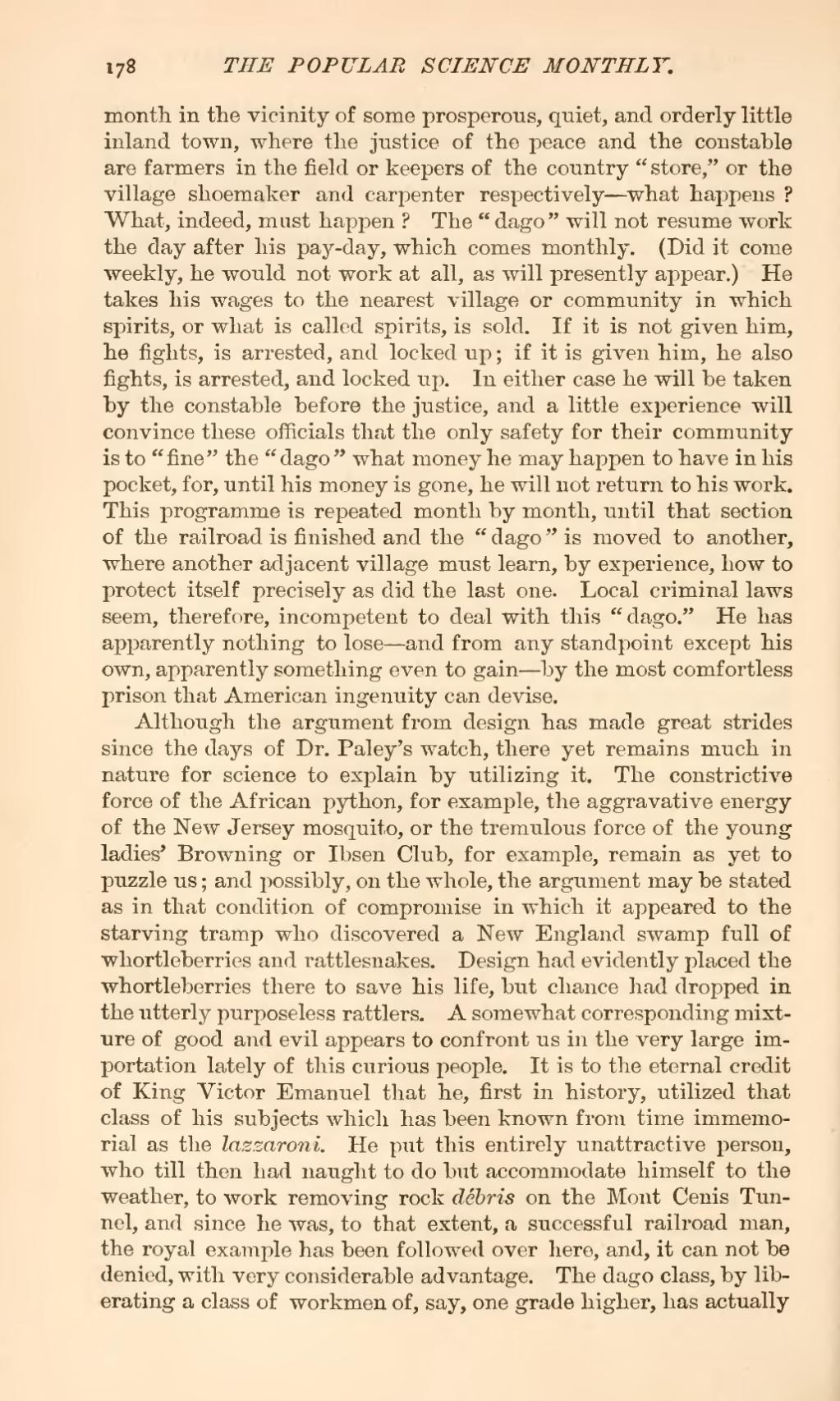month in the vicinity of some prosperous, quiet, and orderly little inland town, where the justice of the peace and the constable are farmers in the field or keepers of the country "store" or the village shoemaker and carpenter respectively—what happens? What, indeed, mast happen? The "dago" will not resume work the day after his pay-day, which comes monthly. (Did it come weekly, he would not work at all, as will presently appear.) He takes his wages to the nearest village or community in which spirits, or what is called spirits, is sold. If it is not given him, he fights, is arrested, and locked up; if it is given him, he also fights, is arrested, and locked up. In either case he will be taken by the constable before the justice, and a little experience will convince these officials that the only safety for their community is to "fine" the "dago" what money he may happen to have in his pocket, for, until his money is gone, he will not return to his work. This programme is repeated month by month, until that section of the railroad is finished and the "dago" is moved to another, where another adjacent village must learn, by experience, how to protect itself precisely as did the last one. Local criminal laws seem, therefore, incompetent to deal with this "dago." He has apparently nothing to lose—and from any standpoint except his own, apparently something even to gain—by the most comfortless prison that American ingenuity can devise.
Although the argument from design has made great strides since the days of Dr. Paley's watch, there yet remains much in nature for science to explain by utilizing it. The constrictive force of the African python, for example, the aggravative energy of the New Jersey mosquito, or the tremulous force of the young ladies' Browning or Ibsen Club, for example, remain as yet to puzzle us; and possibly, on the whole, the argument may be stated as in that condition of compromise in which it appeared to the starving tramp who discovered a New England swamp full of whortleberries and rattlesnakes. Design had evidently placed the whortleberries there to save his life, but chance had dropped in the utterly purposeless rattlers. A somewhat corresponding mixture of good and evil appears to confront us in the very large importation lately of this curious people. It is to the eternal credit of King Victor Emanuel that he, first in history, utilized that class of his subjects which has been known from time immemorial as the lazzaroni. He put this entirely unattractive person, who till then had naught to do but accommodate himself to the weather, to work removing rock débris on the Mont Cenis Tunnel, and since he was, to that extent, a successful railroad man, the royal example has been followed over here, and, it can not be denied, with very considerable advantage. The dago class, by liberating a class of workmen of, say, one grade higher, has actually
